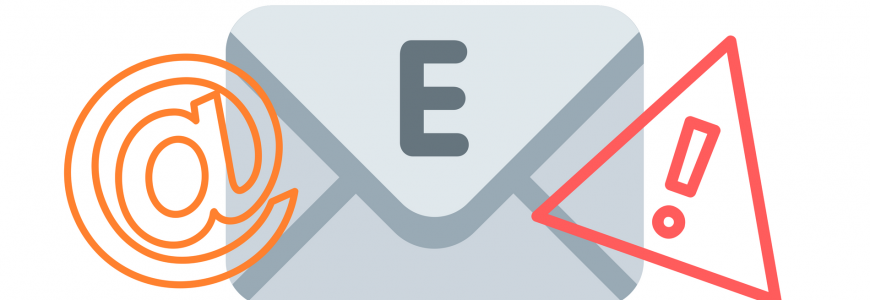When you receive an email from an unknown sender, what’s the first thing you look at? Hopefully, it’s the email address itself. After all, why bother reading the contents of the email if you don’t even know who it’s from to begin with? The sender’s email address alone will tell you a lot about the email’s credibility and authenticity before you even read a word.
We wanted to bring this up because there’s a new batch of scam emails going around, and we want you to be aware of them. Keep reading for more details!
What the Scam Looks Like
As you know, email scams aren’t anything new. However, this time, they’re trying to target you with phony “SEO” tactics. In these emails, alleged “SEO” practitioners tell you that your website is “not in compliance with Google’s policies” (or language similar to this effect). Then, the sender asks you to click on a tool that will “scan” your website (but, wait a second–didn’t they already scan your site to determine you weren’t in line with Google’s policies in the first place…?)
After you click on this “scanning tool,” you’ll receive “results” saying your website requires specific improvements. This whole runaround functions as a way to get you in the door and scare you into purchasing shady “SEO” services that you truly don’t need.
How We Know It’s a Scam
Here’s a recent example of this type of scam. We had a client call us up, all concerned about an email they received from “harrySEO1@outlook.com.” This email followed the same exact path outlined above: It alerted our client that their website—which was built by Prospect Genius—wasn’t “in line with Google’s policies.” Then, when the client ran the scan, it told them they needed super-basic things like title tags and H1 headers.
These “results” immediately proved to be fake: As a matter of standard operating procedure, we *always* optimize a website with essential SEO elements like title tags, H1 headings, alt attributes, etc. So, for a “scan” to say those elements were missing is a complete lie.
Beyond that, we’re also constantly staying up to date with Google’s policy and algorithm updates so we can stay ahead of any major changes to SEO best practices. In other words, we are always in full compliance with Google’s latest guidelines.
The long and short of it: These emails are bunk because we can disprove them in a matter of seconds.
Be More Skeptical of Emails
But do you want to know what the real kicker is? Our client could have avoided all this trouble if they had simply paid attention to the sender’s email address in the first place. HarrySEO1@outlook.com? Really? It’s not even from a real business domain! It’s clearly just from someone’s personal email account. This should have been a red flag right from the jump.
Of course, it’s never your fault if you get deceived like this client did. Many scammers make a living by tricking unsuspecting individuals into buying things they don’t need. At the end of the day, most people are trusting and take others at their word. There’s nothing wrong with that. In fact, it’s admirable!
However, with the internet being what it is, you do need to look at everything and everyone online with a little more scrutiny. The internet makes it all too easy for anyone to pretend to be someone they’re not. Protect yourself first and foremost.
We Can Help You Verify These Emails
If you do receive an email that seems like it’s from a legitimate source (i.e. it’s from a real business domain and is well written) and you’re interested in looking into it further, we won’t stop you. In fact, feel free to click the “scan” tool, run the test, and ring us up with the results! Then, we can go over the results with you, item by item, and show you whether they’re accurate or not.
Whatever you decide to do, make sure you’re treating these emails with a healthy dose of skepticism and not just taking their statements at face value!
READ MORE: “Were You Offered a Free Website Audit? It’s Probably a Scam”



